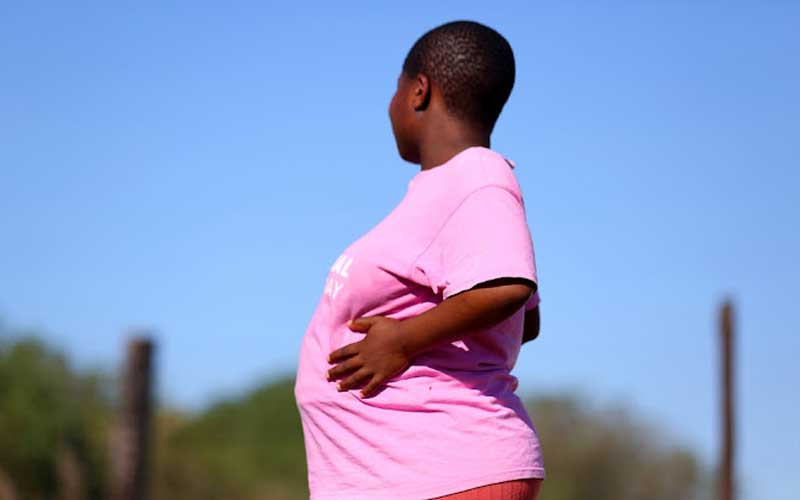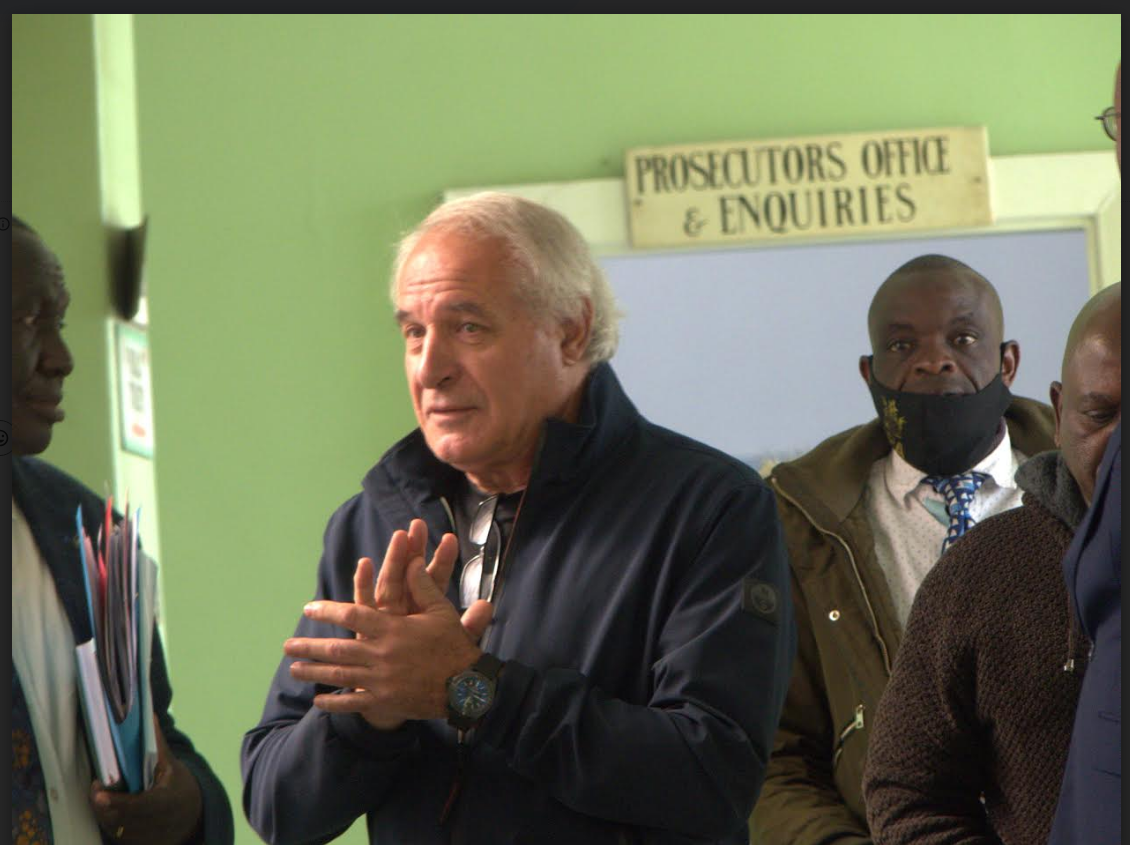
Monday mornings are usually busy for parents with school going children in Zimbabwe.
Parents often wake up early enough to ensure their children have everything ready to start a new week — a daily routine.
But on one particular Monday morning, during the last week of January 2024, Theresa Chirare* mother to Christine, a Form one student in Shamva district, found herself dealing with something she had never prepared for.
Christine (13) revealed that she was pregnant.
Upon further questioning, she revealed the name of a 17 year old boy with whom she had sexual intercourse with a month earlier.
The only instinct for Chirare was to take her daughter to the nearest police station in Shamva town.
“When we got there, the police indicated that unless it was forced intercourse, in which it would be called rape, then there was nothing much they could to with the situation,” Chirare said.
Unsatisfied by this, and believing that at 13, her daughter had not reached the legal age of sexual consent, Chirare decided to escalate the case.
- ‘Govt spineless on wetland land barons’
- SA’s search for a fairer electoral system
- SA’s search for a fairer electoral system
- Mawere demands judge’s recusal
Keep Reading
The legal age of consent is the age when a person is deemed old enough to decide to have sexual intercourse.
In Zimbabwe, the general public has always been generally aware that the legal age of consent is 16.
What it meant was that anyone who indulged in sexual activity with a person under the age of 16 was guilty of a sexual crime regardless of the circumstances.
“So, when I went to the police, I was seeking justice in a case where I was sure whoever impregnated my daughter was supposed to be locked up,” said Chirare.
Unknown to Chirare, her daughter was a victim of what legal experts have termed government and Parliament’s legal negligence.
Until 2022, Part III of Chapter V of the Criminal Law Code created several crimes which involved sexual activities with young persons under the age of 16 years.
In 2022, two Zimbabwean women who were married as children, with the support of legal think-tank, Veritas, and represented by former legislator, Tendai Biti, challenged the law on the basis that it was unconstitutional Section 81 of the constitution defined children as people under 18.
They argued on behalf of the women that it was unconstitutional that children could not be married until they attain 18 “yet the law allowed them to be abused from the age of 16.”
The Constitutional Court ruled that the legal age of consent for sex should be raised to 18 from 16, a judgement welcomed by many in a country where rights groups say teen pregnancies are forcing hundreds of girls out of school.
However, that meant the existing laws, which set the age of consent at 16, were no longer applicable.
However, crafting a new law needed some time.
In order to protect children, the Constitutional Court suspended its ruling for 12 months ‘to enable the Justice minister and the attorney general to enact a law that protects all children from sexual exploitation.’
When the 12 months expired on May 24, 2023, government and Parliament had not yet crafted a new law.
Writing in a column, legal expert Mike Murenzvi said, “It is gross negligence that the minister of Justice did not cause a Bill to be crafted, debated, and enacted to remedy this unconstitutionality within the stipulated 12-month period.
“It is also an indictment on the 9th Parliament for not following up on a widely reported story,” he said. “MPs failed to pressure government to bring in the Bill.”
Murenzvi’s article was responding to a high profile case in which Nkosilathi Gumbo was charged with having sex with a minor in May 2023.
Gumbo was sentenced to an effective 18 months in prison, but he went on to appeal at the High Court.
The High Court ruled that Gumbo had been charged, convicted, and sentenced under a non-existent law.
Gumbo escaped a jail sentence after the court set aside the ruling.
On January 12, 2024, President Emmerson Mnangagwa used his presidential powers issued a Statutory Instrument to raise the age of consent from 16 to 18 years.
Offenders face maximum of 10 years jail.
Last year, Cabinet had approved principles to the Criminal Law (Codification and Reform) Amendment Bill to criminalise sexual activity with anyone below the age of 18.
While the constitution defines children as those below the age of 18, the Criminal Law (Codification and Reform) Act defined a young child as one who is below 16 years, thereby creating a gap in the law which would possibly expose children above 16 to sexual exploitation.
Raising the age from 16 to 18 years was welcomed and described as part of the government’s alignment with the constitution, which defines a child as someone aged below 18 years.
Child rights organisations applauded the move. The intervby Mnangagwa could have been good, but a little late for some.
Justice minister Ziyambi Ziyambi said by using presidential powers, “we wanted to close a gap that had been created.”
Zimbabwe Human Rights NGO Forum programmes coordinator Wilbert Mandinde said the law does not operate in retrospect.
“What that means, unfortunately, is that those who perpetrated sexual crimes against children during this time will walk scot-free,” Mandinde said.
Mandinde said it was unfortunate that the government and legislators were focusing on elections, and did not prioritise the enactment of the law within the time set by the Supreme Court.
“It indicates lack of seriousness on our lawmakers. We are aware that ahead of August 2023, they will concentrate on power retention.”
At the time when Mnangagwa issued the statutory instrument, the Forum and its members had drafted an application to compel the government to come up with a bill to protect the children.
Women in Law Southern Africa - Zimbabwe (Wlsa-Zimbabwe) director Isheanesu Chirisa said the gap caused confusion such that police officers were now forced to refuse to handle some cases because there was no enabling law to charge offenders.
“It increased vulnerability among children, as they were not just exposed to sexual exploitation, but to things like HIV and Aids, pregnancy and maternal deaths,” Chirisa said.
Chirisa said her organisation was providing necessary support to victims while pushing for enabling legislation to protect children.
For Christine, her hope is that she gets adequate counselling and the necessary psycho-social support, if possible, to terminate the pregnancy, but there are legal hurdles to that.
The Termination of Pregnancy Act stipulates that pregnancy can only be terminated after a certificate has been issued ‘by a magistrate of a court in the jurisdiction of which the pregnancy is terminated’
In the case of Christine and many others who have been sexually exploited and their case have not seen any prosecution, they are stuck with their pregnancy, according to legal experts.
According to the Termination of Pregnancy Act, “an abortion may be legally performed if the pregnancy seriously endangers the mother's life or threatens to permanently impair her physical health, if there is a significant risk that the child would be born with serious physical or mental defects, or if the fetus was conceived as a result unlawful intercourse.”
In the case of Christine, despite being 13, her pregnancy was not out of unlawful intercourse because at the time of her sexual contact, there was no law outlawing sex with a 13 year old..
“For now, those whose children were exploited during the time when there was no law, their only remedies remain two,” Chirisa said.
“They can either pursue a civil lawsuit against the perpetrators, but that can be expensive and is often beyond the reach of many, or they can attempt to use the traditional courts, whose nostrum is often based on reparations and fines.”
According to the Zimbabwe National Statistics Agency (ZimStat) preliminary 2022 census report on fertility, 133 455 women aged between 20 and 24 years, representing 16.2% of the total, were married before attaining the age of 18.
The proportion was higher at 22.7 percent in rural areas as compared to 7.2 percent in urban areas, the report said.
ZimStat’s 2019 Multiple Indicator Cluster Survey revealed that 45.1 percent of girls in Mashonaland East get married before they turn 18.
Zimbabwe has seen an upsurge in teen pregnancies in recent years largely because of deepening poverty amid revelations by the United Nations Population Fund that 350 000 girls aged between 10 and 19 fell pregnant between 2019 and 2022.
According to findings of a National Assessment of Adolescent Pregnancies in Zimbabwe (2023) released in June funded by the United Nations, of the 1.7 million antenatal care bookings recorded between 2019 and 2022, 358 000 were of girls aged between 10 and 19.










